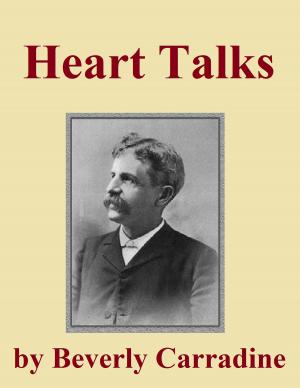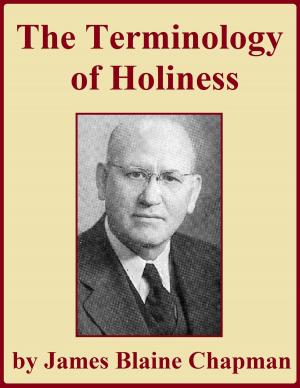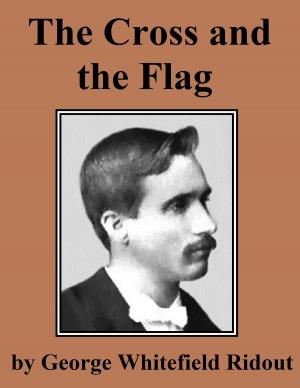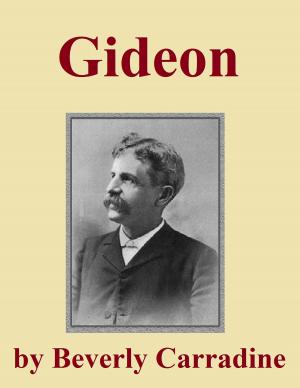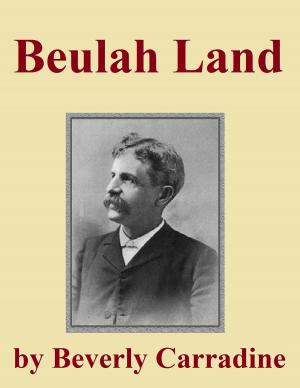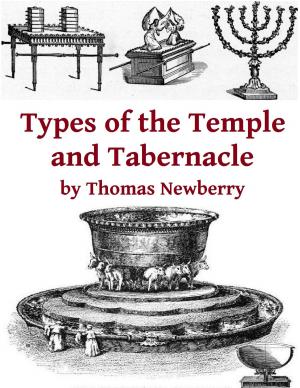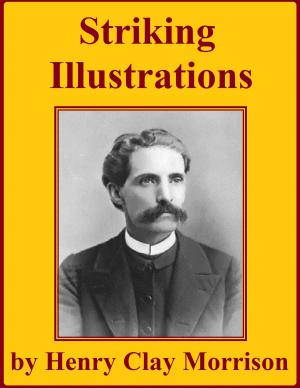Temptations Peculiar to the Sanctified
Nonfiction, Religion & Spirituality, Christianity, Denominations, Methodism, Education, Christian Life| Author: | Christian Wismer Ruth | ISBN: | 1230000354844 |
| Publisher: | Jawbone Digital | Publication: | April 11, 2015 |
| Imprint: | Language: | English |
| Author: | Christian Wismer Ruth |
| ISBN: | 1230000354844 |
| Publisher: | Jawbone Digital |
| Publication: | April 11, 2015 |
| Imprint: | |
| Language: | English |
From the introduction:
For forty years the name C. W. Ruth has been a synonym for soundness in the teaching of the doctrine of holiness after the Wesleyan interpretation. And it is not logically possible for one who is sound on this central tenet of scriptural orthodoxy to be heterodox on any theme directly related to it. Therefore thousands of people who have, by the preaching and writing of Evangelist C. W. Ruth, been safely directed into the conditions upon which God has bestowed His regenerating and sanctifying grace are always eager to hear him on a new theme, and the instruction and exhortation he gives are always safe and practical and worthy of all acceptation.
Hitherto, by far the larger portion of Brother Ruth’s writings have dealt with the crises by which the soul is brought into the grace of full salvation. He is known far and near as pre-eminently a “second blessing preacher.” His work as evangelist has compelled him to think and pray and plan primarily for immediate results in the responses of his hearers and readers.
But no man could live the life of a sanctified man as long as C. W. Ruth has lived it without having much to do with the temptations which are common to Christians in this state of grace, and none could attain the splendid reputation as “an overcomer” that he has gained without, incidentally, learning much that should be of great value to all who are sincerely anxious to “perfect holiness” in the fear of the Lord.
But besides having been a faithful scholar in the school of experience, C. W. Ruth is a theologian, a logician and a philosopher. He reasons and seeks out connections and deduces sound conclusions. Thus he is able, not only to write of temptation as he has known it, but also to treat of it as it may appear in the experiences and lives of others.
No one can doubt that a book on “Temptations Peculiar to the Sanctified” has been needed for a long time, and that it is needed now more than ever. And no one who knows the author of the present volume and his relationship to the holiness movement will doubt for a moment that he is the one to give us such a book. In fact, it would have seemed that he was negligent of duty if he had died without producing the book you now hold in your hand. This book will become a veritable spiritual manual for sanctified Christians and will be as effective a means in helping souls to keep the grace of God as the author’s former writings have been in assisting them to get it.
And despite the incongruity involved in a stripling’s attempt to introduce a man of war, I am happy to commend Evangelist C. W. Ruth and his book, and to say to any who may possibly know me and not him: Buy this book, read it for your own soul’s defense, sell it to your neighbors, give it to your intimate friends, and help it to reach out far and wide to the accomplishment of the glorious mission which it is competent and destined to fulfill. And may all those who must face a multitude of such temptations as are peculiar to the sanctified, enjoy also that life of constant victory which is also peculiar to the sanctified.
The Table of Contents are as follows:
Chapter 1 — THE WHY OF TEMPTATION
Chapter 2 — THE TWOFOLD NATURE OF TEMPTATION
Chapter 3 — IMPORTANT DISTINCTIONS CONCERNING TEMPTATION
Chapter 4 — TEMPTATIONS PECULIAR TO THE SANCTIFIED
Chapter 5 — TEMPTATIONS PECULIAR TO THE SANCTIFIED — (Continued)
Chapter 6 — TEMPTATIONS PECULIAR TO THE SANCTIFIED — (Continued)
Chapter 7 — HOW TO MEET TEMPTATION
Chapter 8 — WHAT TO DO IN CASE OF DEFEAT
Chapter 9 — THE WAY OF ESCAPE IN TEMPTATION
Chapter 10 — THE REWARD OF TEMPTATION
About the author:
Christian Wismer Ruth (1865-1941) was raised in a Christian home, and said that his family was one of true spirituality and godliness. Though exposed to religion throughout his childhood, he was not converted until the age of 17.
Ruth was one of ten founding fathers of the Church of the Nazarene. His rally cry was always for unity, despite divisions in the holiness movement at the time.
Throughout his evangelistic ministry, he was always known as one who held sound doctrine. People were always excited to hear his insights into the scripture, as he was known to be trustworthy.
From the introduction:
For forty years the name C. W. Ruth has been a synonym for soundness in the teaching of the doctrine of holiness after the Wesleyan interpretation. And it is not logically possible for one who is sound on this central tenet of scriptural orthodoxy to be heterodox on any theme directly related to it. Therefore thousands of people who have, by the preaching and writing of Evangelist C. W. Ruth, been safely directed into the conditions upon which God has bestowed His regenerating and sanctifying grace are always eager to hear him on a new theme, and the instruction and exhortation he gives are always safe and practical and worthy of all acceptation.
Hitherto, by far the larger portion of Brother Ruth’s writings have dealt with the crises by which the soul is brought into the grace of full salvation. He is known far and near as pre-eminently a “second blessing preacher.” His work as evangelist has compelled him to think and pray and plan primarily for immediate results in the responses of his hearers and readers.
But no man could live the life of a sanctified man as long as C. W. Ruth has lived it without having much to do with the temptations which are common to Christians in this state of grace, and none could attain the splendid reputation as “an overcomer” that he has gained without, incidentally, learning much that should be of great value to all who are sincerely anxious to “perfect holiness” in the fear of the Lord.
But besides having been a faithful scholar in the school of experience, C. W. Ruth is a theologian, a logician and a philosopher. He reasons and seeks out connections and deduces sound conclusions. Thus he is able, not only to write of temptation as he has known it, but also to treat of it as it may appear in the experiences and lives of others.
No one can doubt that a book on “Temptations Peculiar to the Sanctified” has been needed for a long time, and that it is needed now more than ever. And no one who knows the author of the present volume and his relationship to the holiness movement will doubt for a moment that he is the one to give us such a book. In fact, it would have seemed that he was negligent of duty if he had died without producing the book you now hold in your hand. This book will become a veritable spiritual manual for sanctified Christians and will be as effective a means in helping souls to keep the grace of God as the author’s former writings have been in assisting them to get it.
And despite the incongruity involved in a stripling’s attempt to introduce a man of war, I am happy to commend Evangelist C. W. Ruth and his book, and to say to any who may possibly know me and not him: Buy this book, read it for your own soul’s defense, sell it to your neighbors, give it to your intimate friends, and help it to reach out far and wide to the accomplishment of the glorious mission which it is competent and destined to fulfill. And may all those who must face a multitude of such temptations as are peculiar to the sanctified, enjoy also that life of constant victory which is also peculiar to the sanctified.
The Table of Contents are as follows:
Chapter 1 — THE WHY OF TEMPTATION
Chapter 2 — THE TWOFOLD NATURE OF TEMPTATION
Chapter 3 — IMPORTANT DISTINCTIONS CONCERNING TEMPTATION
Chapter 4 — TEMPTATIONS PECULIAR TO THE SANCTIFIED
Chapter 5 — TEMPTATIONS PECULIAR TO THE SANCTIFIED — (Continued)
Chapter 6 — TEMPTATIONS PECULIAR TO THE SANCTIFIED — (Continued)
Chapter 7 — HOW TO MEET TEMPTATION
Chapter 8 — WHAT TO DO IN CASE OF DEFEAT
Chapter 9 — THE WAY OF ESCAPE IN TEMPTATION
Chapter 10 — THE REWARD OF TEMPTATION
About the author:
Christian Wismer Ruth (1865-1941) was raised in a Christian home, and said that his family was one of true spirituality and godliness. Though exposed to religion throughout his childhood, he was not converted until the age of 17.
Ruth was one of ten founding fathers of the Church of the Nazarene. His rally cry was always for unity, despite divisions in the holiness movement at the time.
Throughout his evangelistic ministry, he was always known as one who held sound doctrine. People were always excited to hear his insights into the scripture, as he was known to be trustworthy.

